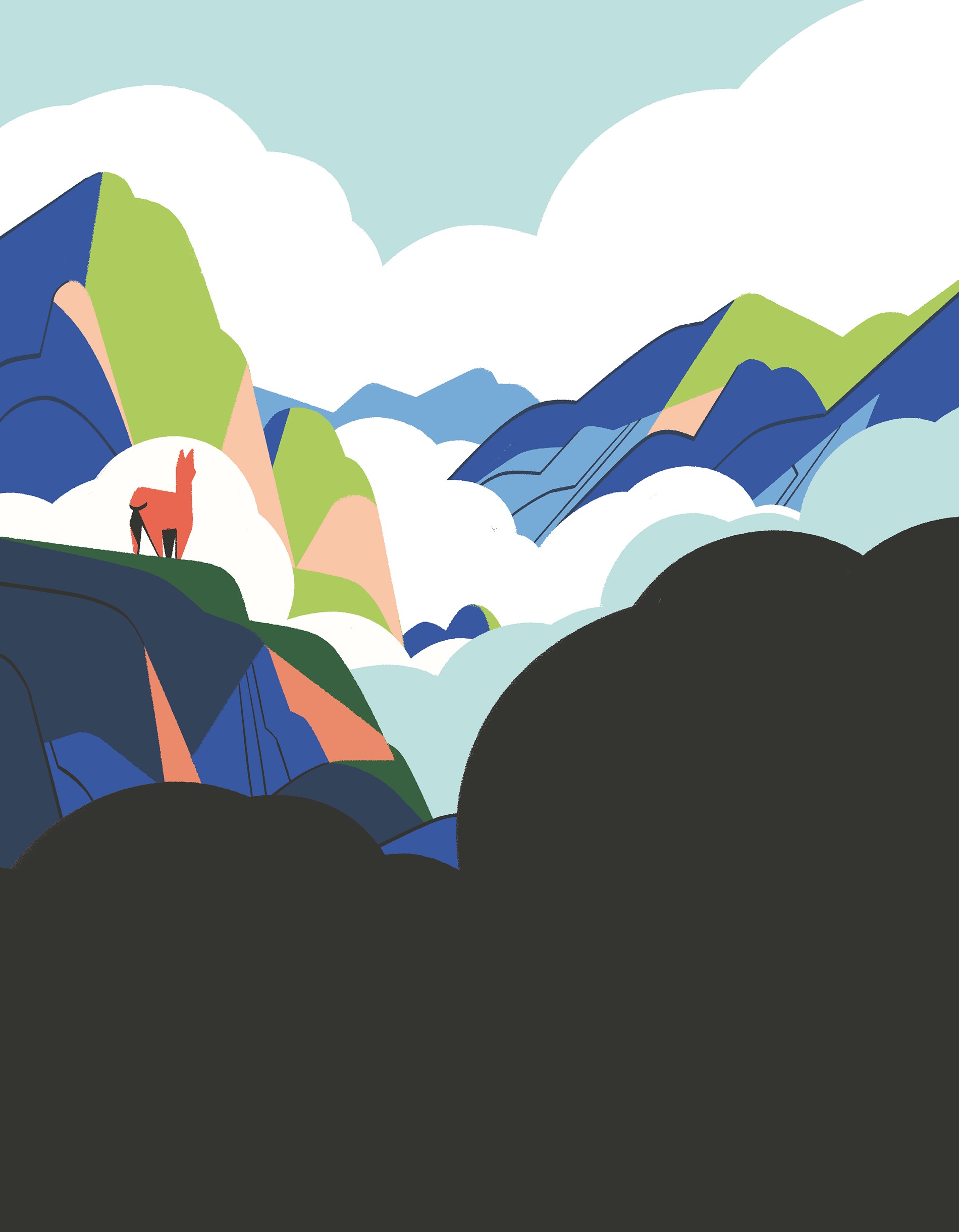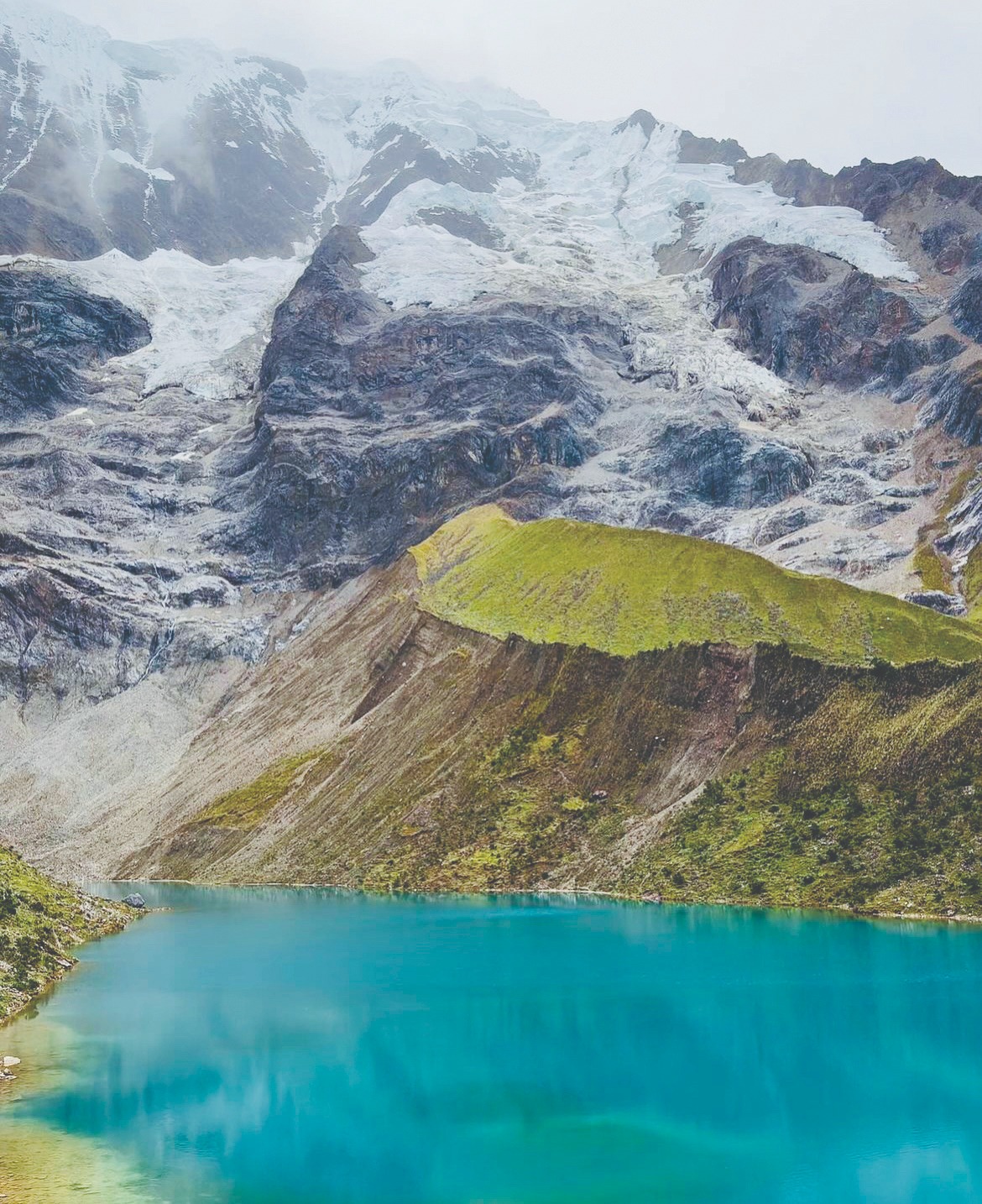BY EMMA MACDONALD
"I was not prepared for this,” I thought to myself as I looked down at my sneakers slowly splitting at the seams, while the boulders shrank below with our increasing altitude. These were my feverish thoughts as our team of Catholic University nursing students arrived in Cusco, Peru, for some cultural experiences at the tail end of our international clinical and language immersion program. Perhaps we would wander around the colorful markets, explore the city, and indulge in some traditional meals while we stayed in the ancient capital. Much to my surprise, however, I found myself standing halfway up a mountain a couple hours from Cusco, on a hike to Laguna Humantay, without proper shoes.

I’ve been lucky to spend the better part of my youth and early adulthood outdoors, yet on this hike in particular, I remember feeling exhausted from both our 4 am wake up call and the lack of preparation for this climb. In the distance, we could hear a loud commotion, and when we rounded the corner, we came face to face with a number of horses and handlers that were offering rides to the top; shortly thereafter, we found ourselves on horseback en route to Laguna Humantay.
Looking back, this was a moment of revelation for me; it reinforced the importance of recognizing when to ask for help. When sitting down to write about my Peruvian experience, I combed through my travel journal; however, I kept returning to that moment on the mountain as a tangible memory that clarified my understanding of a central theme of my experience in Peru: releasing the reins a bit and asking for help when needed. After all, as a non-native Spanish speaker, I felt completely out of my depth, and I had to learn very quickly that asking for help does not equate to weakness.
Studying abroad in Peru was not just an academic endeavor but a transformative journey that shaped my understanding of healthcare, language, and culture. As a candidate for the Spanish for Healthcare Professionals Certificate, I took numerous Spanish classes, but learning a language in the real world is vastly different from the classroom.
Arriving in Peru, the vibrant culture and warm hospitality immediately captivated me. Settling into the Universidad de Piura (UDEP) brought new challenges and insights as I navigated healthcare settings entirely in Spanish. From the bustling urban hospitals of Lima to the community-centered clinics on the outskirts of the city, the diversity of patient cases exposed me to a spectrum of medical conditions and treatment approaches, including traditional medicine. Working alongside Peruvian healthcare professionals, I honed my clinical skills and adapted to local practices. Language proved to be both a barrier and a bridge. While initially daunting, immersing myself in Spanish-speaking environments accelerated my language proficiency. Mastering medical terminology became essential as I communicated with patients and collaborated with multidisciplinary teams.
This journey reinforced my commitment to patient-centered care and advocacy for health equity.

I found the most moving part of my experience not in the clinical setting, but in the community health fairs our student group facilitated. In impoverished neighborhoods where access to healthcare was limited, our team provided much-needed support, addressing emotional, psychological, and psychiatric weaknesses. The team conducted medical screenings, health education workshops, and supplied residents with resources for ongoing care.
These experiences underscored the disparities in healthcare access and reinforced the importance of culturally sensitive care. Building rapport with community members, despite linguistic and cultural differences, taught me the value of empathy and understanding in nursing practice. It was here that I more starkly realized that healthcare transcends clinical expertise — it requires cultural competency, as well as compassion and advocacy for underserved populations.
Living in Peru immersed me in a rich tapestry of traditions, cuisine, and celebrations. Whether exploring ancient Incan ruins or getting to know our Peruvian counterparts, every experience deepened my appreciation for Peruvian culture. Building friendships with locals and my fellow CatholicU students enriched my perspective and broadened my outlook.
Studying abroad in Peru as a nursing major and learning Spanish as a non-native speaker was more than an academic pursuit — it was a profound journey of personal and professional growth. Overcoming obstacles fostered resilience and adaptability, qualities that are crucial for a nursing career that demands quick thinking and problem-solving.
This journey reinforced my commitment to patient-centered care and advocacy for health equity. It expanded my worldview and my appreciation for the interconnectedness of global healthcare challenges. Returning home, I carry with me not only enhanced clinical skills and language proficiency but also meaningful connections and experiences that will shape my nursing practice for the rest of my life.
— Emma Macdonald is a senior nursing major and Spanish for Healthcare certificate student who traveled to Peru with Professor Jennifer Maxwell.


